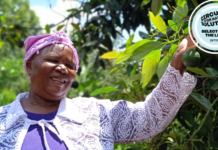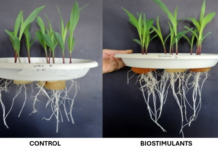One of the debate topics at this year’s Nation in Conversation is around the importance of economies of scale, and the benefits of having an economy of scale in business, and specifically in South African agriculture.
From a business perspective, there is none closer to this subject than AFGRI itself. Now a leading agricultural services company, the group had a humble beginning. Back in 1923, 150 people attended a meeting called to establish the Oos-Transvaalse Landboukoöperasie, with 29 people signing the list of original members.
By 1930, 5,400 tons of maize was being handled by AFGRI – then considered a record, this in fact was hardly enough to fill the tube of one modern silo today. And 42 years later, in 1972 the total business silo capacity was 587,700 metric tons. Today AFGRI’s handling and storage capacity is more than five million tons!
Over the 95 years it has been in business, AFGRI has grown its offerings to encompass a wide variety of services and products, geared to support farmers no matter what their size.
“Constant innovation and in-depth knowledge of the agricultural sector means that we have also kept pace with the changing needs of our customers. We now offer grain management services, financial services, including insurance solutions and a financial transacting platform, agricultural equipment, animal feeds, retail outlets, commodity and currency trading, and commodity hedging amongst others,” says CEO of AFGRI, Tinus Prinsloo.
“This all-encompassing approach that means that farmers need look no further than AFGRI for all their requirements. For us, economy of scale means the ability to offer total support for our customers.”
Inherent to this approach are the lessons learnt from supporting generations of farmers – many of whom also started off small. “As their needs have grown and changed, we’ve been able to map our own growth. Because of our size, we’re also able to invest in the latest farming innovations through our division, AFGRI Technology Services, which is focused on mobilising AgTech to the benefit of South African farmers.”
In partnership with John Deere, AFGRI is the largest John Deere dealer outside of North America, and nothing says “efficiency” better than the equipment, technology and support that is provided through this long-standing partnership. “Here’s a fun fact – in 1963, the year following AFGRI entering into an agreement with John Deere, we sold only 28 tractors, compared to 1972 when we sold 519 John Deere tractors. Now our equipment technology leads the market with innovative solutions and products.”
According to Prinsloo, South African farmers are also world leaders in adopting technology to enhance and economise farming.
To ensure farmers have ground-breaking technology to hand to best manage their equipment, the AFGRI Equipment and John Deere partnership are currently implementing JD Link, a near real-time telematics system connecting most makes and models of agricultural machinery in the field with the farmer’s office and mobile devices.
“The JD Link system, which AFGRI Equipment has already started rolling out to farmers, helps collate telematics and a wide range of data from all machines. Vital information to prevent downtime as an example, is available at any time to the farmer, and this, in our opinion, will improve efficiencies even further,” says Prinsloo, adding that AFGRI Equipment would be making more information available on this system in the next few weeks.
He adds that another logical progression of economy of scale, and the experience gained over more than nine decades of working side by side with South Africa’s farming community, is AFGRI’s involvement in assisting emerging farmers, where the goal is to support their growth path of becoming the commercial farmers of the future.
“By passing on this information and knowledge and offering insight that comes from many years of experience, combined with mentorship where our teams work directly with emerging farmers throughout the process, are able to assist the individual to enhance his/her yields. This puts the farmer in a good position to increase yields and grow more crops, ultimately helping him or her to become the successful commercial farmer of tomorrow.”
Prinsloo concludes that at AFGRI it is not one divisional approach that supports the success of the farmer, no matter whether large or small, but the total offering of AFGRI, which has been moulded over nine decades and which continues to be enhanced upon as requirements and economic challenges change.









